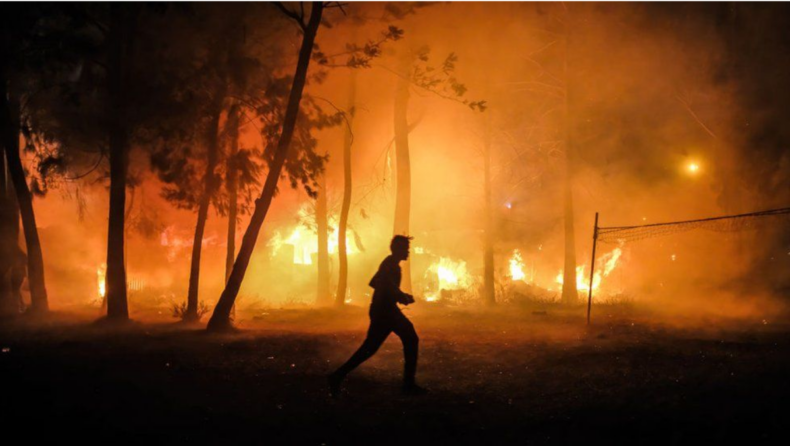The impact of climate change is a potential threat to the global economy, society, and the natural ecosystem. While the world battles an extreme crisis, nations vow to implement new climate policies to mitigate the global problem.
Highlights:
- Pakistan battles scorching heat in Jacobabad.
- The climate change crisis is the next big threat for Iraq.
- India announces Net Zero-emission by 2070.
Devastating heat waves take a toll on the world, triggering a global warming alarm.
With rising mercury and temperatures, the world is battling one of the most intense heat waves in decades. Rising sea levels threaten properties from flooding by 2050.
Flash floods due to melting glaciers, drying lakes, and unusual sandstorms, are a symbol of the climate change crisis requiring attention.
The hottest city on Earth:
Jacobabad, Pakistan, witnessed a soaring temperature of 51 degrees leaving the population vulnerable to heat strokes.
Water sources have run dry, and agriculture is proving to be tough. The city suffers water shortages and power supply.
Daily wage workers are affected as the heat proves extremely difficult to work. Pakistan is the eighth most vulnerable country exposed to climate change.
Cyclones, droughts, and floods have affected the country with thousands dead or displaced. Jacobabad witnesses extreme heat waves making it a survival challenge.
Iraq threatened by climate change:
Sandstorms ravaged the country of Iraq, forcing it to shut down its airport in Baghdad as climate change poses an existential threat. In two months, ten sandstorms hit the country, crippling the livelihood of the society.
On world environment day, President Barham Saleh stated that tackling the climate change crisis is now a national priority.
The sandstorms sent thousands of people to hospitals with respiratory problems and left one person dead.
Ranked as the fifth most vulnerable nation to climate change, Iraq is considered to suffer a 20 percent drop in water resources by 2050 due to climate change.
Scorching weather in Spain- an impact of climate change:
Spain is experiencing an unusual heat wave and saw its hottest May in 100 years.
The temperature touched 40 degrees in several parts of the country, affecting the agriculture sector. Water and fodder shortages sent the farmers in distress.
The temperature in Spain’s capital, Madrid, is expected to intensify in the coming days throughout Europe. The scorching weather is another example of the climate change crisis.
Lake Penuelas, Chile, dries up:
A reservoir the Chileans depend upon, lake Penuelas, is reduced to a puddle due to climate change. A 13-year drought has hit Chile, resulting in extreme water scarcity.
The lake remains at a 0.2% capacity, with 2 million people relying on it for fresh water.
Water scarcity has affected 8.5 million people in the Chilean region due to a decade-long drought. Meanwhile, the government called for the creation of desalination plants to address the issue.
Yellowstone national park closed due to floods:
Unprecedented rainfall floods the Yellowstone national park forcing it to be closed for the first time in 34 years.
Visitors were evacuated, and the iconic national park shut its doors to avoid inbound traffic. The adverse effects of climate change are evident and threaten the balance of the natural ecosystem.
New policies issued by China to tackle climate change:
The adverse effects of climate change have driven the Chinese government to issue new policies to address its impact. Carbon emissions will be assessed to reduce them.
China aims to be a carbon-neutral nation by 2060. Furthermore, the new policy vows to decrease industrial water usage by 6%.
Nation-wide climate change risk assessment systems to be built by 2035.
Additionally, the plan mentions reducing water consumption for economic activities by 2021 and 2025. While China looks to be in the right direction, committing to its new policies must be its end goal.
Zero carbon goal by 2070:
At the Conference of Parties (CoP26), Glasgow, Prime Minister Narendra Modi announced India’s commitment to achieving Net Zero emissions by 2070 to help prevent the climate change crisis.
The targets set by India will demand those first-world countries take similar measures.
Meanwhile, the road map to Net Zero emissions will build a robust framework in the Indian renewable energy sector and further strengthen the commitments to mitigate the impact of climate change.
According to the presentation at Glasgow, India will address five major points in tackling global warming.
Some of the promises made at the summit included decreasing India’s carbon intensity to below 45 percent by 2030.
India will also meet 50 percent of its energy requirements with renewable energy. The energy sector of India will undergo a massive transformation in the future.
Climate change has posed an existential threat to several countries and continues to do so.
While several nations have pledged to tackle the climate change crisis, only time will tell if the commitments will be fulfilled.













